Introduction
In today’s gardening world, understanding peat free compost is crucial. This type of compost is gaining traction among gardeners looking for eco-friendly options. Knowing what peat free compost actually means can inform your gardening choices. It helps promote sustainability and protect our planet's natural resources.
What Does Peat Free Mean?
So, what does peat free mean? Simply put, peat free compost is made without using peat, a natural material that grows in peatlands. These regions are essential for biodiversity and carbon storage. Regular compost often includes peat, which can harm these delicate ecosystems. The primary difference lies in the ingredients. Peat free compost uses alternatives like coir, wood fibers, and other organic materials.
Peat Free Compost vs Regular Compost
When comparing peat free compost vs regular compost, nutrient content is a key factor. Peat free options can be just as rich in nutrients as traditional compost when made correctly. They often provide essential nutrients like nitrogen, phosphorus, and potassium, ensuring plants thrive.
Environmentally, peat free compost has a clear advantage. Regular peat compost damages peatlands, which are vital for carbon capture. By choosing peat free compost, you help reduce carbon emissions and support a healthier planet.
How Is Peat Free Compost Made?
Understanding how peat free compost is made helps clarify its benefits. The process begins with sourcing the right ingredients. Materials such as coir, composted wood bark, and wood fibre are common. These sources provide rich, organic matter that can replace peat. Wildmore Compost's compost is created with a balanced blend of AD Fibre, Coir, Wood Fibre and Wood Bark. You can find out more about what Wildmore Compost put into their compost here.
Once the ingredients are gathered, composting and preperation techniques play a crucial role. The materials are mixed and allowed to decompose in controlled conditions. This process can take between several weeks to months, depending on the method used. Proper aeration and moisture levels are essential to ensure a successful composting process. Depending on the material, they need to be prepared differently. For example, coir needs to be dried for an eco-friendly transportation, and AD Fibre and other organic wastes need to be pasteurised.
Benefits of Peat Free Compost
The environmental benefits of using peat free compost are significant. First and foremost, it supports peatland conservation. By avoiding peat, gardeners help protect these fragile habitats from degradation.
Moreover, peat free compost contributes positively to plant growth. Its rich nutrient profile nurtures plants, promoting strong root systems and vibrant foliage. Additionally, it enhances soil health by improving texture and moisture retention. Gardeners often notice improved crop yields and healthier plants when using peat free compost.
How to Use Peat Free Compost
Using peat free compost in your gardening efforts is straightforward. You could start by mixing it into your existing soil to improve its quality. This practice works well for flowers, vegetables, and shrubs. For container gardens, fill pots with peat free compost to provide optimal growing conditions. You can use peat free compost anywhere that you would normally use peat compost, as long as it says that you can on the bag. For example, some all purpose peat free composts do not have much success with seedlings, so it it recommended that you use a specialist seedling mix for seeds instead.
Remember to tailor your application based on plant types and soil conditions. Some plants may thrive better with added compost, while others may require a lighter mix. Understanding your plants can lead to a more successful gardening experience.
Peatland Conservation
Preserving peatlands is immensely important for several reasons. These regions not only support diverse plant and animal species but also play a significant role in climate regulation. Yearly, the average peat sales would fill around 29,000 large shipping containers. This means that up to 850,000 tonnes of CO2 will be released back into the atmosphere from UK peat sales alone each year. You can read more about peatland conservation and environmental impact of peat here.
Using peat free compost plays a vital role in these conservation efforts. By choosing peat free options, you help reduce demand for peat extraction. This choice directly contributes to safeguarding our planet’s peatlands while promoting sustainable gardening practices.
Conclusion
In summary, peat free compost offers numerous benefits for gardeners and the environment alike. Understanding what peat free means clarifies why it’s a valuable choice. Encouraging sustainable gardening practices helps protect our natural resources. So, as you plant and grow, consider peat free compost as your go-to option. Making responsible choices in your gardening can lead to a healthier planet and thriving plants.



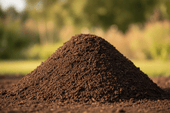



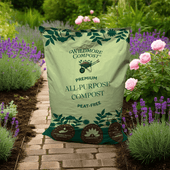
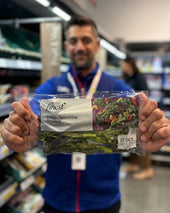
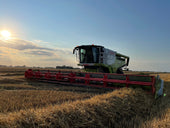







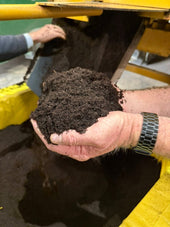



0 comments